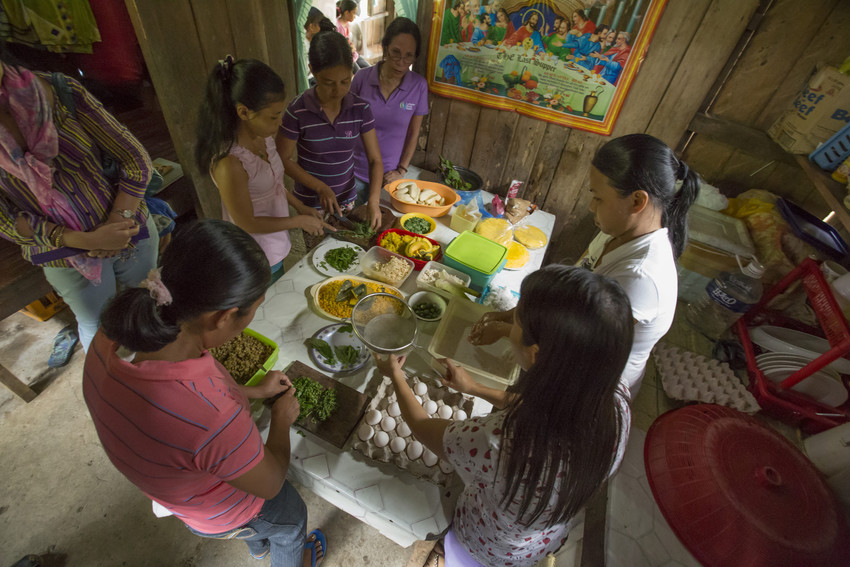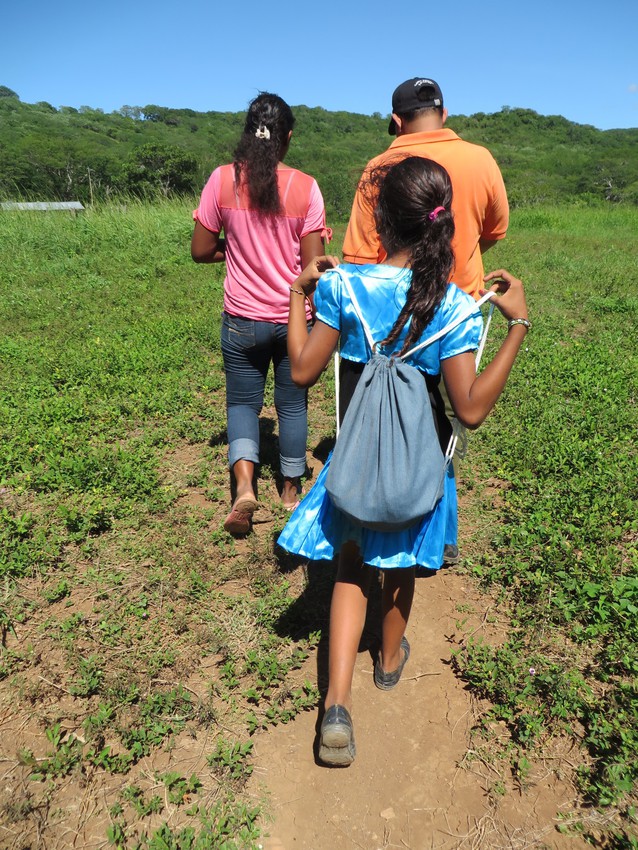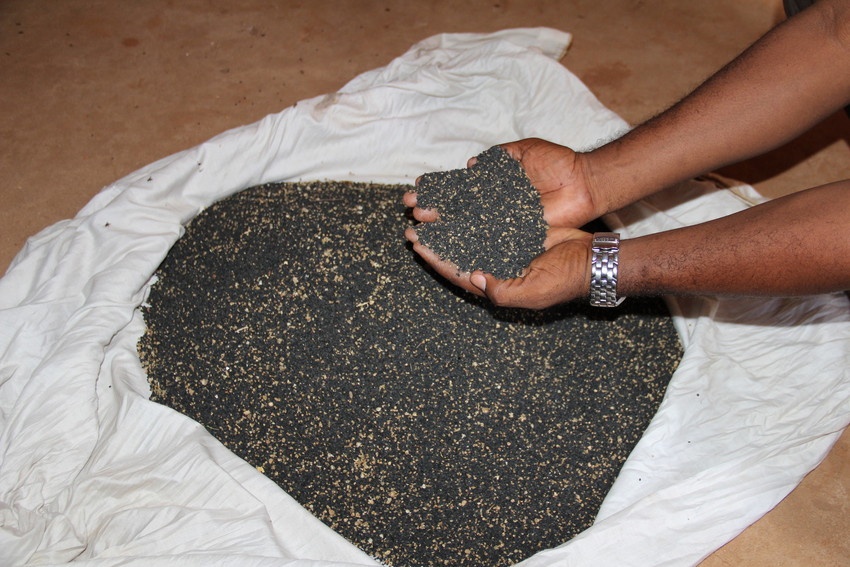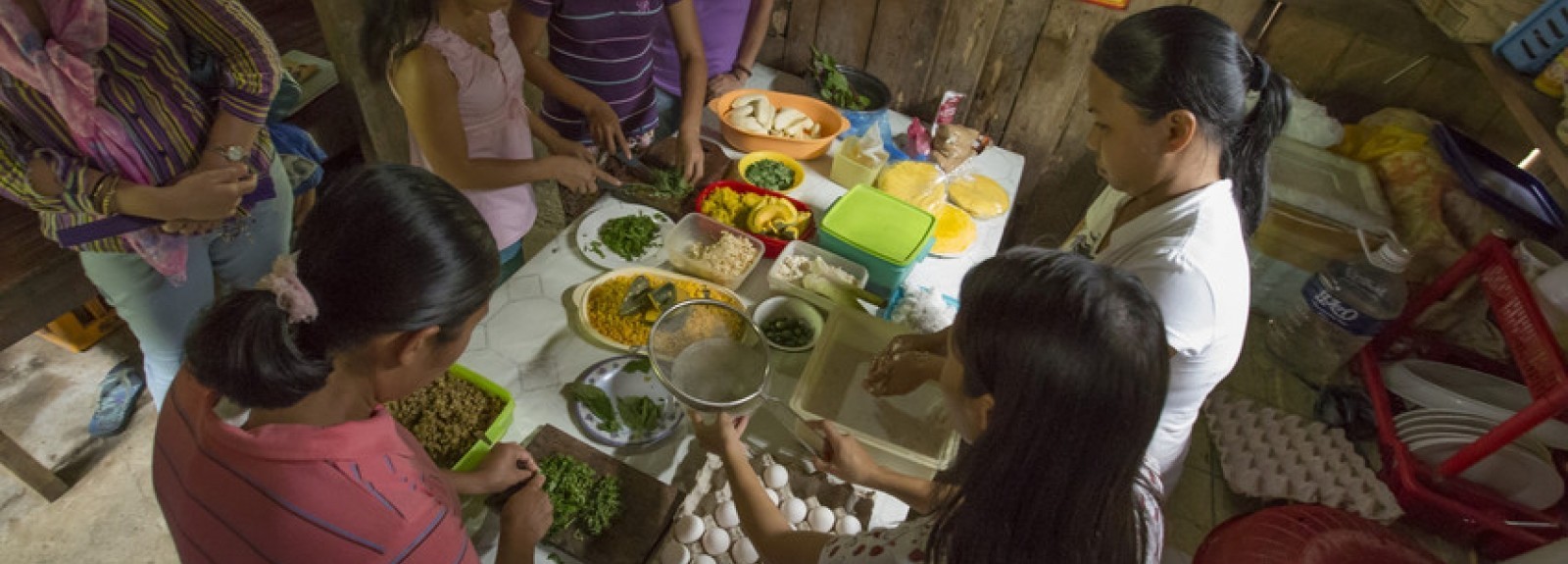You’ve heard the old adage: a picture is worth a thousand words.
In celebration of #WorldPhotoDay, August 19, here are five photos that tell the story of the amazing work you do with LWR way better than words ever could – along with a few words...just in case you'd like to know more about the picture!
Thank you for helping families around the world grow food, earn income and build better futures with Lutheran World Relief.
Haiti: Overcoming Adversity From the Ground Up

Alexis St. Firmin is the president of the St. Helene de Carice coffee cooperative, with which LWR works in northeast Haiti. But the real story in this picture is what he’s holding.
Those are coffee tree leaves affected by a disease called leaf rust – a devastating, air-borne crop disease that kills coffee trees and can wipe out whole coffee farms. Alexis explains that the first symptom of leaf rust is a residue on the back of the coffee tree leaf, followed by a browning of the leaf, as pictured. From there the branches of the tree begin to die and, finally, the entire tree begins to die.
Leaf rust is a problem in nearly every coffee-growing region where LWR works. It’s a threat to the livelihoods of coffee farmers, many of who own small plots of land and depend on their coffee crops for income.
With your support, LWR is working to help coffee farmers overcome the challenges of leaf rust. We’re helping them access disease-resistant seed varieties, learn to treat their farms when rust is found, and introducing new crops to diversify farms, lessening the dependence on a single crop for income.
Did you know that coffee is one of Haiti's lead exports? Learn how your support is helping create coffee entrepreneurs in Haiti.
The Philippines: Fighting Childhood Malnutrition

In Del Monte barangay, a typical meal for many families might be rice and sardines, a lack of nutritional diversity that has resulted in malnutrition – especially in children.
With your support, LWR is working with partners to combat childhood malnutrition with an approach that looks at the behaviors of children who are well nourished and seeks to replicate those behaviors with children who aren’t getting enough nutrients.
As a part of the program, families learn to grow a variety of nutritious foods in their household gardens, and then come together in special sessions to learn how to prepare the food in ways their children will eat.
This project promotes food security in the Philippines, but have you ever wondered: what exactly is food security? And how does it differ from hunger? Read more about it!
Nicaragua: Kits of Care

This Nicaraguan girl is returning from a special school program and is wearing an LWR school kit. Without these school kits, many children in the rural area of Mateare Caranzo couldn’t attend school because they don’t have supplies. Also pictured is her mother Brenda, a community leader, and Maryan, head agronomist and program coordinator for local partner CIEETS, which works with LWR.
This photo was taken by LWR Key Leader Karon Speckman, who is also a Field Volunteer for Foods Resource Bank (FRB). She traveled to Nicaragua with FRB to visit projects, and also visited a community that receives LWR School Kits.
In communities all around the world school kits can make the difference in helping families provide education to their children. If you already make school kits, thank you! If you'd like to learn how, visit Project Promise: Build Kits of Care to get started.
Niger: Storing Hope

This is a sack of $40 worth of onion seeds, which will yield 400 120-kilo sacks of onions. A sack of onions sold at harvest time brings 7-10,000 CFA ($14-20). The same sack, properly stored and sold later in the year when onions are in scarce supply, can bring 10 times as much. LWR is working with local partner Union Amintchi to improve members' crops and teach storage techniques so they can sell when prices are high.
"What this means for us is this," said one member: "before, when you get to the hungry season, you might have had to sell an animal. But now we can sell a sack of onions instead – it’s like insurance. You have what you need, you don’t have to debase yourself asking to borrow money from others.”
This project is just one way you help families in West Africa build resilience against the affects of drought, poverty and changing climate conditions. Learn more about our resilience work in West Africa.
Kenya: A Model for Success

Jonathan Kakonge is a lead farmer in the Njaa Marufuku project funded by LWR with the Muungano Nguvu Yetu farmer association. Lead farmers are equipped with bicycles and a smart phone. The bicycle helps them reach farmers to teach them good practices related to farming in arid conditions to maximize their yields, and the phone helps them receive and exchange information to share with farmers or send in data about their activities to the project coordinator.
This project uses smartphone technology to connect farmers with the information they need to improve their crops and income. Read more about how your support provides game-changing technology for farmers.


